Making a global impact one project at a time
Led by PLuS Alliance fellows and researchers, these collaborative, seed-funded research projects focus on creating a sustainable future for everyone.
Led by PLuS Alliance fellows and researchers, these collaborative, seed-funded research projects focus on creating a sustainable future for everyone.
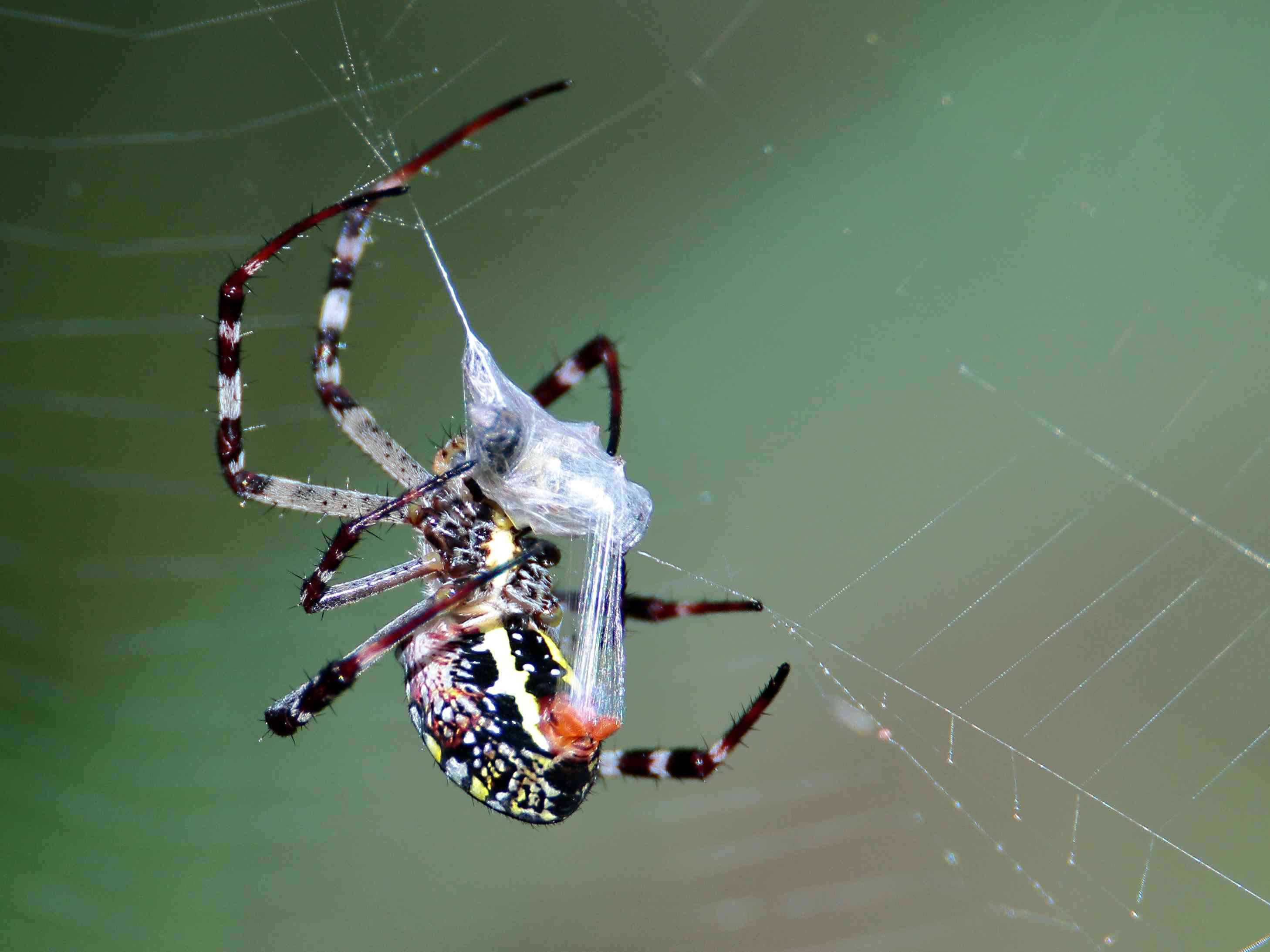
Given the impacts that creating and using thermoplastic has on the environment, any new materials that can perform as well as these materials can without impacting the environment are widely sought after. Spider silk is an extremely high performance material made from proteins in a water solvent. Harvesting spider silk in the same way as silkworm silk is harvested is nonetheless not possible due to the cannibalistic nature of the spiders. Our team has initiated a recombinant spider silk generation program that is progressing very well, with a range of proteins already produced. Seed funding will enable the technology to progress to a stage where production can be scaled up and external industry partners approach for funding the extensive work required.
Dr Sean Blamires |
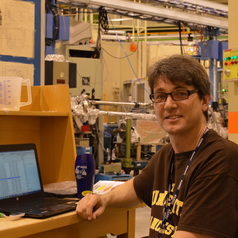
UNSW | Sustainability

UNSW • Sustainability
Sean Blamires attained a PhD in Biology from the University of Sydney in 2007. He also has a Graduate Diploma of Education (University of New South Wales, 2003). He has held research positions at Tunghai University, Taiwan (2009-2014), University of Akron, USA (2011), and the University of New South Wales (2014-2018), along with teaching positions at New York University (2014-2020) and Notre Dame University (2020). Dr Blamires’ research interests range from the physiological ecology of spider silk and webs to the genetic engineering of silk products. He is the founder of the Spider Silk Research Lab, which has collaborations across 5 continents and engages in cross-disciplinary research on silks and other materials. Dr Blamires has authored over 70 Scientific papers with over 100 collaborators, including publications in prominent journals such Annual Review in Entomology, Current Biology, and Chemical Communications. His papers have been cited over 1200 times.
Professor Jeffrey Yarger |
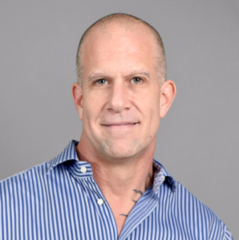
ASU | Sustainability

ASU • Sustainability
Jeffery L. Yarger is a professor of chemistry, biochemistry and physics at Arizona State University. He holds a joint appointment in the School of Molecular Sciences and the Department of Physics. He is also the founding and current director of the Magnetic Resonance Research Center (MRRC). His primary research interests are in biophysical chemistry, nano-materials, biopolymers and the general field of disordered or amorphous materials. His current research interests includes (i) fundamental structural and dynamical characterization of amorphous materials with an emphasis on biopolymer (i.e., spider silk), amorphous pharmaceuticals and polyamorphic systems; (ii) Development of Nuclear Magnetic Resonance (NMR), X-Ray Diffraction (XRD), Neutron Scattering, Brillouin Scattering, Vibrational Spectroscopy and Calorimetric techniques to better characterize amorphous materials; (iii) Synthesis and molecular level characterization of nano-materials and nano-composites; (iv) The applications of amorphous materials and molecular level characterization techniques to biomedical instruments and human health; and (v) Materials under extreme conditions.
Associate Professor Christopher Marquis |
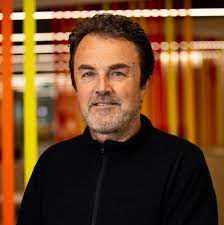
UNSW | Technology and Innovation

UNSW • Technology and Innovation
Associate Professor Marquis trained as a biochemical engineer and has current interdisciplinary research projects across protein biotechnology and in the bio-nanotechnology interface. Current projects include developing recombinant enzymes for organohalide bioremediation, searching for and developing improved versions of the enzyme gamma glutamyltransferase for dipeptide bioproduction, integrating new microfluidic devices into mammalian cell bioprocesses and evaluation of new materials for biofilm deterrence. Newer collaborations include the development of methods to generate recombinant spider silks. In addition Associate Professor Marquis is the Director of the Recombinant Products Facility (www.proteins.unsw.edu.au), which houses research infrastructure for fermentation, cell culture, mid-stream and downstream processing for protein production, purification and characterisation. The facility also provides expertise in developing and optimising bioprocesses. The primary role of the Facility is to provide research support to the UNSW research community, however the facility provides contract services for the wider research community and also industry. The RPF has fermentation capacity to 20L and a variety of mid and downstream processing capabilities for the production and purification of proteins for research. In addition to running contract projects we have a number of internal initiatives to investigate and optimise bioprocesses.
Dr Aditya Rawal |
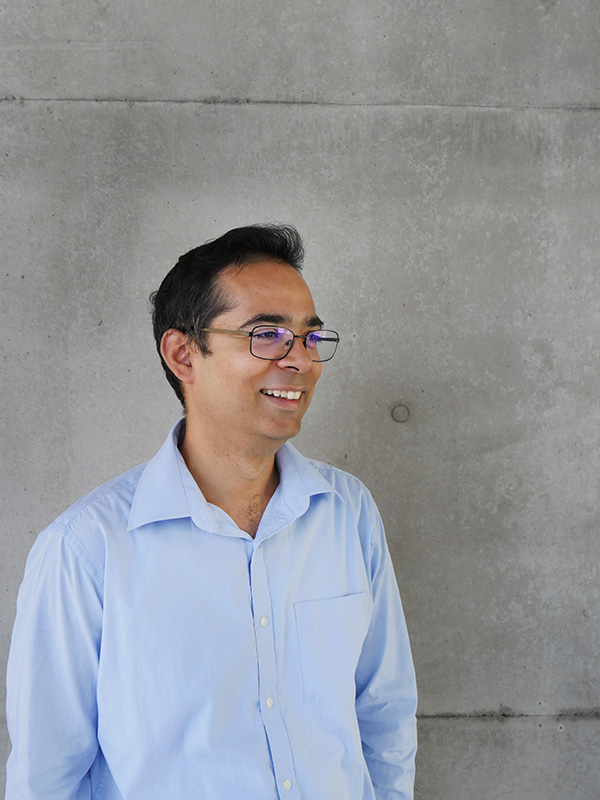
UNSW | Technology and Innovation

UNSW • Technology and Innovation
Dr Aditya Rawal was awarded a PhD in 2007 from the Department of Chemistry, The Iowa State University. He is currently a Senior Lecturer at UNSW, and carries out research at the Nuclear Magnetic Resonance Facility within the Mark Wainwright Analytical Centre. His work focuses on the characterization of order and disorder in multicomponent systems such as spider silks, pharmaceutical formulations, metal organic frameworks and lithium-ion batteries. This characterization leads to a deeper understanding of the origin of material properties in these systems. His tool of choice for these investigations is solid state NMR spectroscopy, which enables him to connect common features of molecular dynamics and site-specific chemical interactions among this diverse range of fields. He is deeply involved in developing instrumental and technical capabilities to broaden the impact of NMR spectroscopy to characterize a range of functional materials.
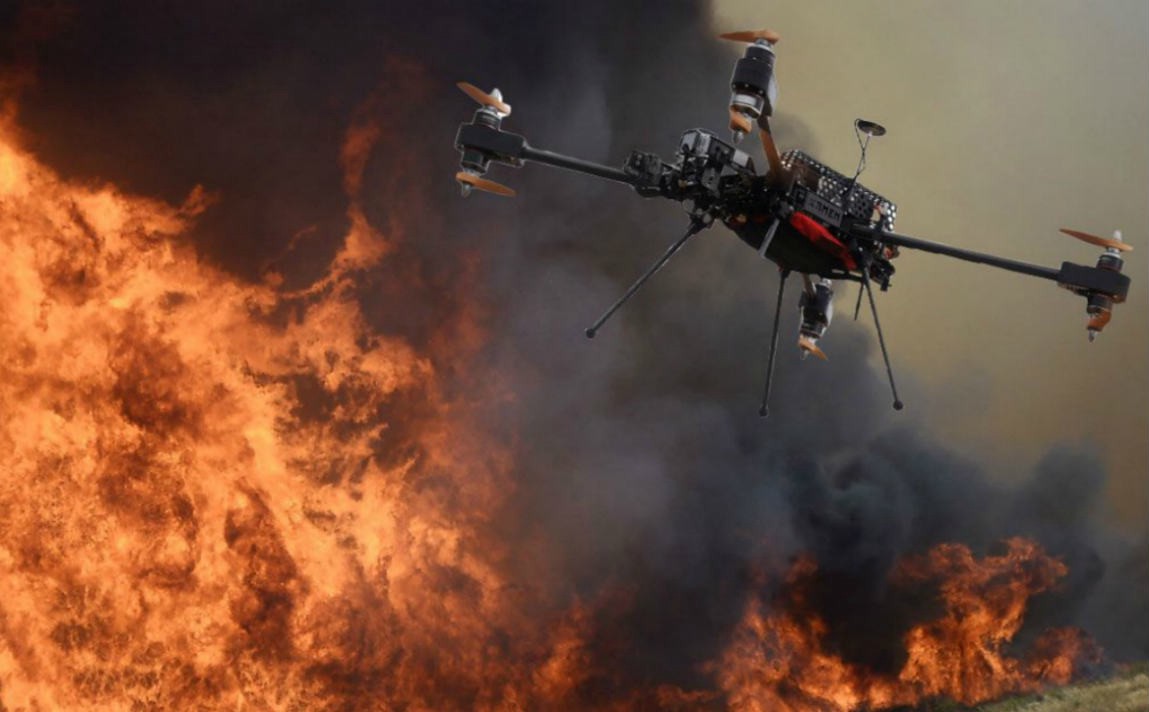
Natural disasters such as the 2020 Australian bushfires and floods in Bangladesh can cause monumental risks to human life, food supplies, energy and financial security. New technologies have the potential to be used more effectively in mitigating these risks. Unmanned Aerial Vehicles (UAVs) and Internet of Things (IoT) systems, linked via communication networks, can interact with Human-In-The-Loop (HITL) based Artificial Intelligence (AI) for safer and more economical monitoring in remote regions or wilderness. IoT devices such as camera-equipped UAVs otherwise known as drones have already proved critically effective in life threatening situation e.g. sea rescues and climate related natural disasters.
Using an interdisciplinary approach based on AI and HITL interactions, this project will deliver a pilot Risk Management-based Framework for Developing Intelligent Systems for Natural Disasters. In the context of the rapidly increasing numbers of connection points to the internet, this project will explore the effectiveness of using large numbers of IoT devices (with inexpensive, low-powered sensors) and UAVs, underpinned by multi-agent based AI and optimization algorithms for decision making. The architectural design using complex technology systems will assist in developing emerging technologically advanced systems to alleviate and tackle natural risks in new ways ensuring reliability, security, safety and resilience.
Professor Brian Gerber |
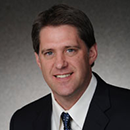
ASU | Global Health

ASU • Global Health
Brian J. Gerber is an associate professor at the College of Public Service and Community Solutions, Arizona State University, where he is director of the Emergency Management and Homeland Security program. Gerber received his Ph.D. from Stony Brook University (SUNY) in 2000. His research specialization areas include disaster policy and management, homeland security policy and administration, and environmental regulatory policy and has published such research in a number of academic journals. Prior to arriving at ASU, he served as executive director of the Buechner Institute for Governance at the University of Colorado Denver, as research director for the Stephenson Disaster Management Institute at Louisiana State University, was a research associate with West Virginia University’s Regional Research Institute, was a research fellow with the National Science Foundation’s “Next Generation of Hazards Researchers” program and has served as a subject matter expert on a variety of projects. He sits on the executive committee of the National Council for Public-Private Partnerships, was a five-year member of the Denver Board of Environmental Health. Gerber has extensive experience performing policy analysis and program evaluation work for state and local government agencies, as well as major national nonprofits engaged in disaster relief and recovery work.
Professor Raina MacIntyre |
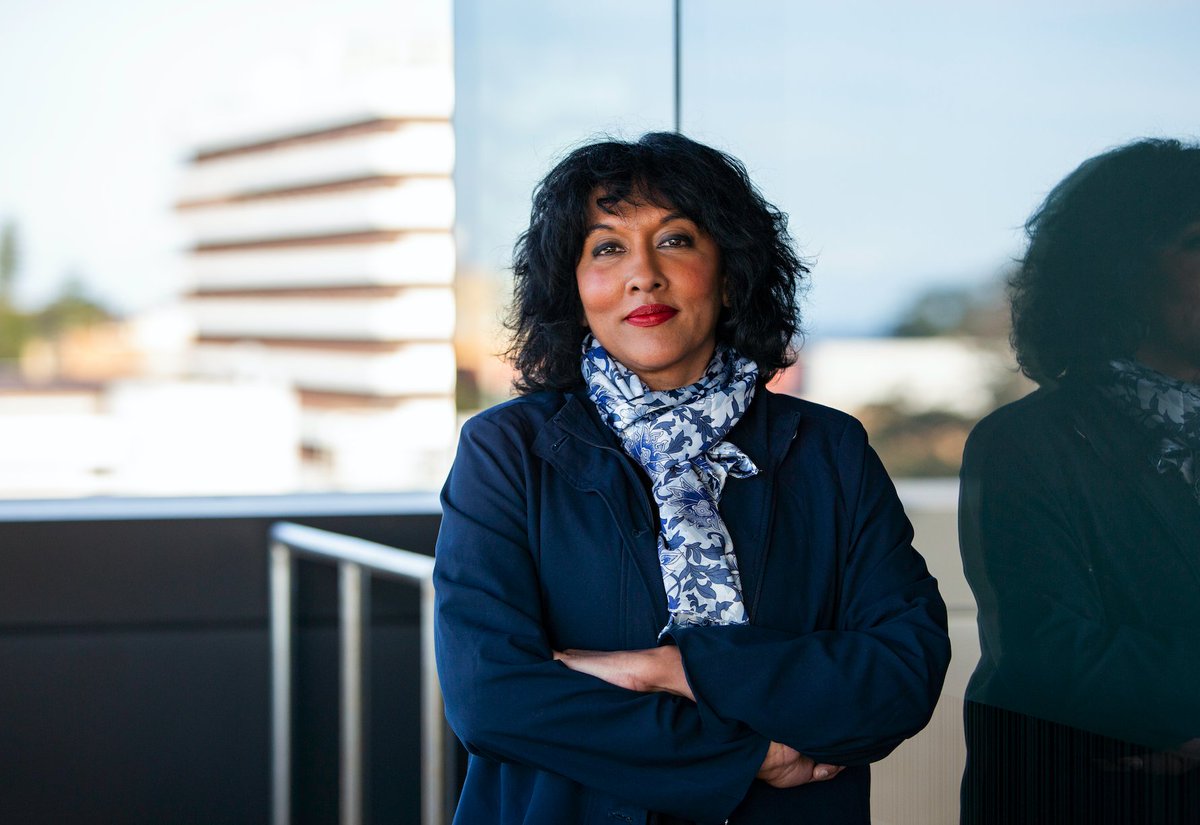
UNSW | Global Health

UNSW • Global Health
Professor Raina MacIntyre (MBBS Hons 1, M App Epid, PhD, FRACP, FAFPHM) is Head, School of Public Health and Community Medicine, UNSW and Professor of Infectious Diseases Epidemiology. She leads a research program in control and prevention of infectious diseases, spanning epidemiology, biosecurity, risk analysis, personal protective equipment, vaccinology, mathematical modelling, public health and clinical trials. Her global health research includes collaborations in India, Vietnam and China. She has over 300 peer reviewed publications in peer reviewed journals. She has received many awards including the Sir Henry Wellcome Medal and Prize from the Association of Military Surgeons of the US in 2007 for her work on bioterrorism, the Public Health Association of Australia’s National Immunisation Award in 2014, and the 2003 Frank Fenner Award for Research in Infectious Diseases. She has sat on numerous national and international expert committees and editorial boards in her field, including the US IOM. She currently heads a NHMRC Centre for Research Excellence in Epidemic Response and UNSW Vaccine and Infections Research Lab (UNSW-VIRL). She is also a founding director of ARM, Australia’s only national epidemic response network. She is an adjunct professor at Arizona State University and in this role is the UNSW lead in collaborative research and teaching in public health security within the PLuS Alliance.
Dr Elena Sitnikova |
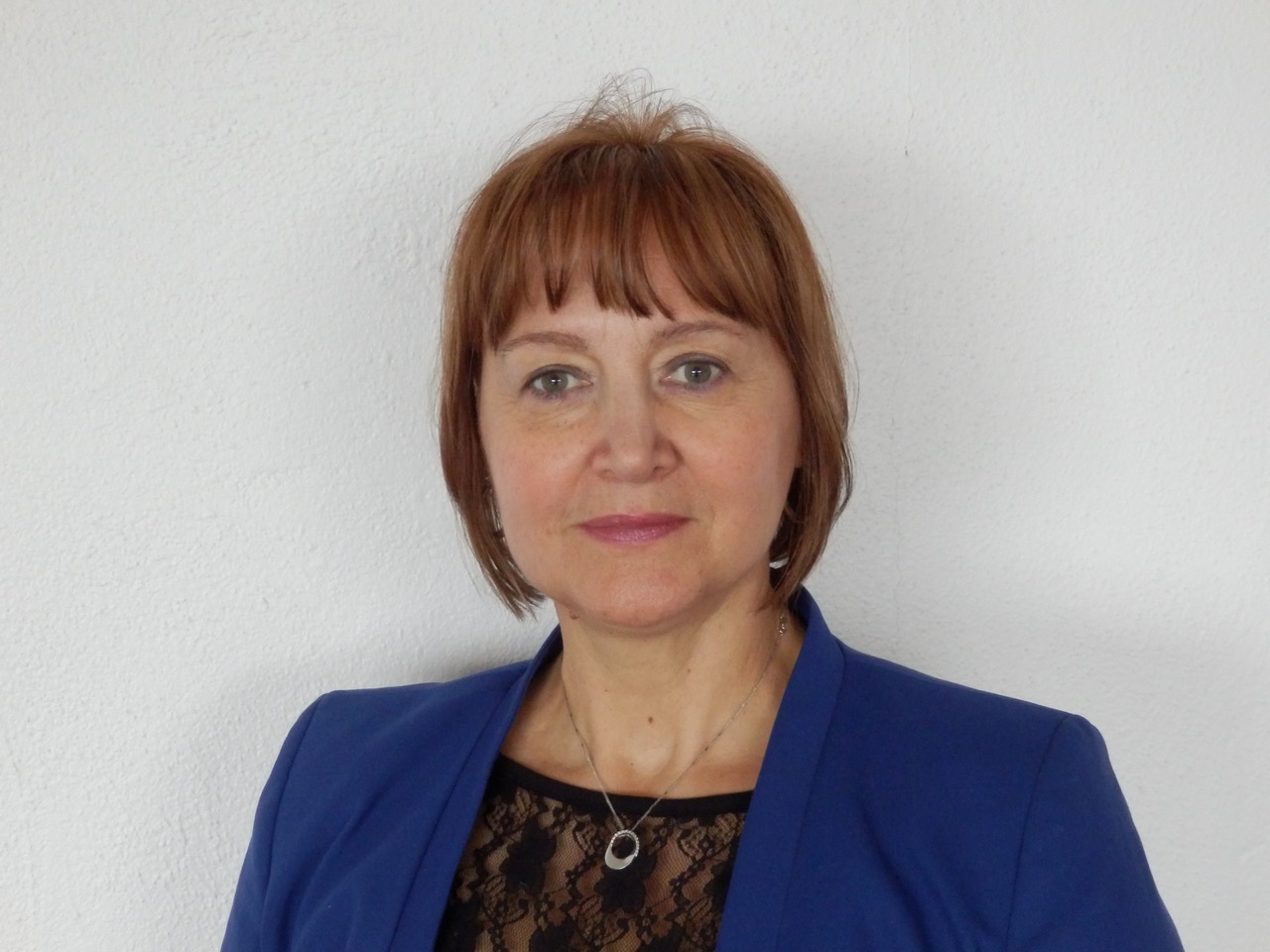
UNSW | Technology and Innovation

UNSW • Technology and Innovation
Dr Elena Sitnikova is an academic and researcher, and Program Coordinator for the Master of Cyber Security program at the University of New South Wales (UNSW) Canberra, at the Australian Defence Academy. This Master program is the fastest growing postgraduate program at UNSW Canberra with student numbers increasing from 60 to 350 between 2015 and 2018. In 2018, two courses that Elena coordinates, Cyber Governance and Information Assurance became the first PLuS Alliance offerings from UNSW Canberra to Arizona State University. Elena leads a Critical Infrastructure Protection research group and publishes widely in the area of intrusion detection (IDS) for SCADA control systems cyber security and industrial IoT. Elena is also involved in education research and publishes in the area of engineering and ICT education. Elena is an award winning academic, holding a national Australian Office for Learning and Teaching (OLT) Team Citation award for Outstanding Contributions to Student Learning.
Dr Kathleen Steinhöfel |
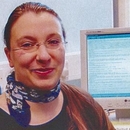
King's | Global Health

King's • Global Health
Dr Kathleen Steinhöfel is a Reader in Computer Science at King’s College London and an Adjunct Professor at UNSW Sydney. She is currently also working with the Francis Crick Institute, a biomedical research centre dedicated to finding new ways to prevent, diagnose and treat conditions such as cancer, heart disease and stroke, infections and neurodegenerative conditions. Dr Steinhöfel’s research interests include: Local Search Algorithms for Combinatorial Optimisation; Energy Landscape Analysis; Applied Algorithmics; Structure Prediction in Molecular Biology and Evolutionary Computation. She is also part of a PLuS Alliance research team seeking to identify risk factors associated with genetic mutations of an efficient human-to-human transmissible form of the highly pathogenic avian influenza (HPAI) H5N1 virus, commonly known as ‘bird flu.’
Professor Luca Viganò |
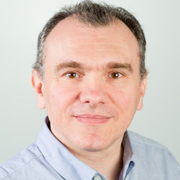
King's | Technology and Innovation

King's • Technology and Innovation
Professor Luca Viganò is a Professor in Computer Science (Software Modelling and Applied Logic). He is also ViceDean (International) for Natural and Mathematical Sciences, promoting international collaboration throughout the Faculty. His research interests include formal Methods for security, security logics, security testing, and labelled deduction for non-classical logics (modal logics, sub structural logics, etc.) and the combination of logics.

The Covid-19 pandemic has serious health implications for older adults. In addition to the risks of the disease itself, self-isolation limiting social contact with family and friends may have psychosocial impacts, such as reduced quality of life and loneliness, leading to depression and anxiety which can be substantial and long lasting. The impact of Covid-19, and the strategies implemented by the government and health care, vary considerably in the UK, US, and Australia. This multidisciplinary team will study and compare the psychological impacts, including quality of life, mental health, coping strategies, loneliness, resilience and cognition, of Covid19-related social isolation in elderly people across the three countries. In addition, we will perform a pilot feasibility-controlled trial to evaluate the use of a novel online psychological intervention focusing on resilience to improve wellbeing. The current project will capitalize on the active large UK PROTECT cohort as well as cohorts from ASU and UNSW, which allows a rapid and cost-efficient study. Understanding the psychosocial effects, and the feasibility and preliminary efficacy data from the intervention will put us in a very strong position to successfully apply for a larger grant to perform a large randomized controlled trial in the three countries.
Professor Dag Aarsland |
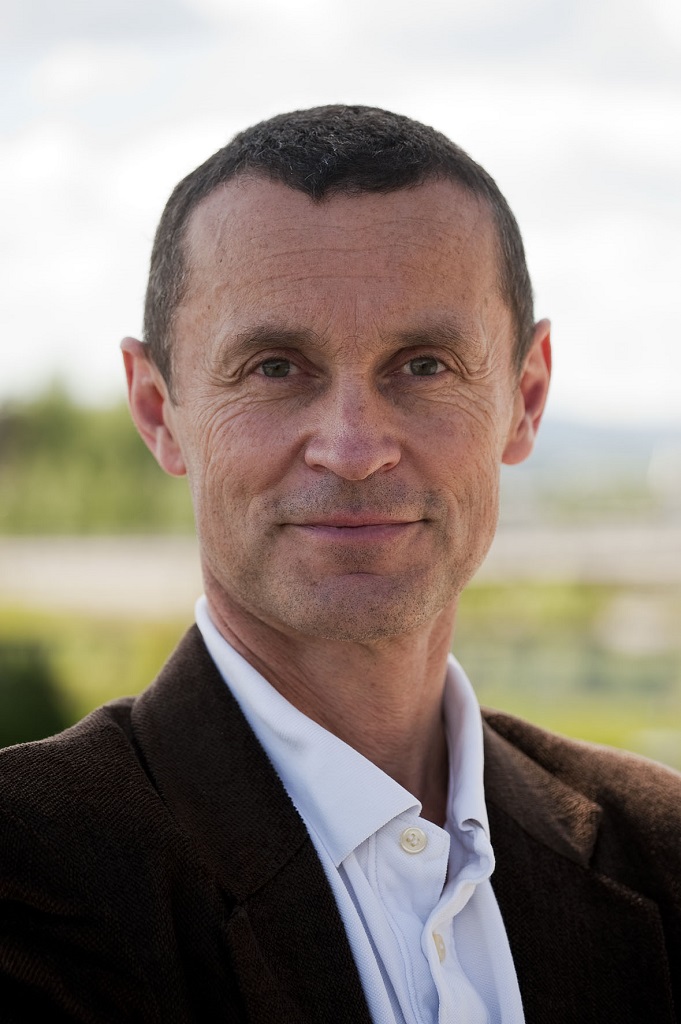
King's | Global Health

King's • Global Health
Professor Dag Aarsland joined the Institute of Psychiatry, Psychology and Neuroscience in January 2016, from Karolinska Institutet where he has been professor of clinical dementia research since 2011. Professor Aarsland is renowned throughout the world in the field of Lewy Body Dementia and Parkinson’s disease but has made contributions across the spectrum of old age psychiatry. He has worked in all aspects of old age psychiatry from basic science to applied health research. He is a natural team player and team-builder and will be a huge asset to the IoPPN and King’s College. Prof Aarsland contributes to new initiatives including dementia research in our forthcoming bid to renew the Biomedical Research Centre. He also carries out some clinical work within South London & Maudsley NHS Trust and assists in training the next cohort of old age psychiatrists. Professor Aarsland gained his degree in medicine in 1988 from the University of Oslo. At the same time as he was working as a clinician at Stavanger University Hospital he started to conduct research, gaining his PhD in 1996 with a thesis on language disorders among patients with Alzheimer's disease. In 1998 he became a specialist in psychiatry. From 2000 to 2002 he was a senior lecturer in geriatric psychiatry at the University of Bergen. He then became an adjunct professor, then professor of geriatric medicine at Bergen from 2006-2009. Between 2007 and 2009 he was a visiting professor at King's College in London, where he has held an honorary professorship since 2009. In 2009 Dag Aarsland became a professor of geriatric psychiatry at the University of Oslo. He is also a director of research at the University of Stavanger's Centre for Age-Related Medicine. Dag Aarsland was, for several years, director of the Norwegian Neuropsychiatric Association. He has been the recipient of numerous prizes, most recently in 2011 when he was awarded the Western Norway Regional Health Authority's Research Prize.
Professor Henry Brodaty |

UNSW | Global Health

UNSW • Global Health
Professor Brodaty is a researcher, clinician, policy advisor and strong advocate for people with dementia and their carers. At UNSW Sydney, he is Scientia Professor of Ageing and Mental Health, Co-Director of the Centre for Healthy Brain Ageing, and Director, Dementia Centre for Research Collaboration. He has over 500 publications in refereed journals, is senior psychogeriatrician and Head of the Memory Clinic at POW Hospital. He was previously President of International Psychogeriatric Association, Chairman of Alzheimer’s Disease International, and President of Alzheimer’s Australia NSW and Australia. He is an officer of the Order of Australia and Ryman Prize winner.
Professor Richard Knopf |
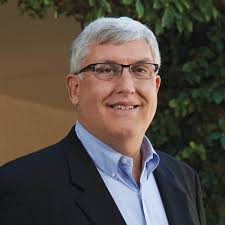
ASU | Community Development

ASU • Community Development
Richard C. Knopf serves as director of the Partnership for Community Development at Arizona State University and of the Osher Lifelong Learning Institute at Arizona State University. He is also a professor of community development in the School of Community Resources and Development within the Watts College of Public Service and Community Solutions at ASU. His expertise rests in advancing community quality of life by building innovative inter-generational partnerships among businesses, government, non-profit and community service organizations. Over the past decade, he has managed investments of more than $2.5 million by corporations, government, and local and national foundations in his ASU centers to promulgate this mission. Professor Knopf has authored more than 170 publications in community quality of life, including state-of-art reviews. In recognition of the global and local impact of his work, he was bestowed with the Community Development Achievement Award from the Community Development Society in 2014. He has also formed partnerships with the work of the UNESCO Institute for Lifelong Learning and its global “Learning Communities” initiative, and serves on the steering committee for the Global Age Friendly University Network. Much of Knopf’s teaching and research has focused on the role of community development in life quality enhancement and economic growth. His specialty areas include: healthy aging and lifespan development, inter-generational programming, community building, community development theory and practice, community needs and assets assessment, community justice and marginalization, civic engagement and volunteerism, strategic planning and visioning, community well-being, community special events management, regional planning, program evaluation and assessment, non-profit capacity building, organizational marketing and promotions, natural resources policy, university-community partnership formation, grant writing, and public philanthropy.

Institutions face immense challenges during sudden global health crises, such as the one triggered by COVID- 19. Perceived uncertainty around such crises is aggravated by misinformation and fake news, which are disseminated through a wide range of social media channels. In thier response to misinformation and fake news, institutions face challenges around escalating dynamics of public relations - and to date little is known how institutions can effectively respond in such crises in order to guarantee social cohesion and build resilience within an increasingly fragmented public sphere. With this research project, we aim to: a) map these tensions, which will help to identify the various cycles that lead to an escalation of polarities; and b) identify institutional responses that either aggravate or break the underlying vicious cycles. We will use quantitative methods to analyze polarization of public reaction to the COVID-19 crisis by focusing on data from Twitter, and qualitative methods to study institutional responses from government agencies/regulators from the UK, USA, Australia, and Hong-Kong for comparative analysis. Overall, this study contributes to a better understanding of the responses and perceptions of the general public during a pandemic health crisis, as well as to effective crisis response by regulators.
Associate Professor Josh Keller |
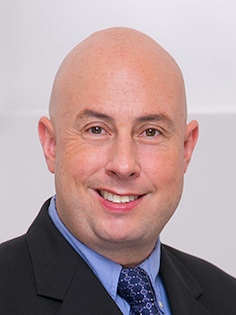
UNSW | Global Health

UNSW • Global Health
Associate Professor Josh Keller's primary research interest is studying how managers respond to strategic paradoxes, including how to cooperate and compete, how to learn new endeavours and take advantage of knowledge of existing endeavours, and how to be both global and local. He also examines cross-cultural differences in approaches to paradoxes. His work has been published in multiple top-tier managerial journals, including Academy of Management Journal, Organization Science, Organization Studies, Human Relations and Organizational Behaviour and Human Decision Processes. As the Program Director for the Master of International Business program, Associate Professor Josh Keller oversees curriculum and engagement issues for the program. He is also actively involved in ensuring that international topics are integrated into School of Management student learning at undergraduate and post-graduate levels.
Dr Michael Etter |

King's | Global Health

King's • Global Health
Michael Etter has a PhD in organization studies and cultural theories from the University of St. Gallen, Switzerland. He has worked as assistant professor at Copenhagen Business School and as Marie-Curie Research Fellow at Cass Business School, City, University of London. His work has appeared in academic journals, such as Academy of Management Annals, Academy Management Review, Journal of Management Studies, and Business and Society. Michael Etter has received multiple awards for his research and teaching excellence, as well as several research grants from prestigious funding institutions, such as the British Academy. Michael Etter is interested in the construction of social evaluation of new and established firms, such as organizational reputation and legitimacy, in the new media landscape, which is shaped by new information and communication technologies (ICT). He looks at strategies, which new and established firms use to establish favourable social judgments in the digital economy. The role corporate social responsibility is thereby prevalent in his work.
Professor Jonathan Bundy |
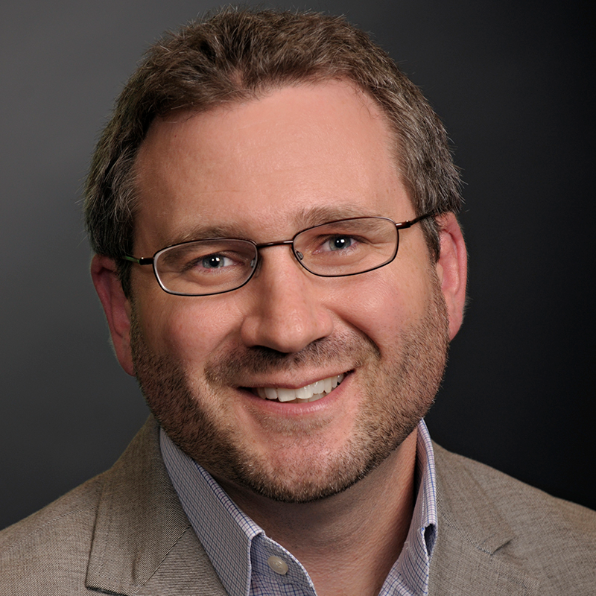
ASU | Global Health

ASU • Global Health
Jonathan Bundy joined the W. P. Carey School of Business in 2016. Professor Bundy’s research takes a behavioral approach to strategic management and focuses on the social and cognitive forces that shape organizational outcomes and behavior. He specifically investigates crisis and impression management, corporate reputation and other social evaluations, firm-stakeholder relationships, and corporate governance. His work has appeared in field-leading journals, including the Academy of Management Annals, Academy of Management Review, Administrative Science Quarterly, Journal of Management, Organization Science, Personnel Psychology, and Strategic Management Journal. He received his bachelor’s and master's degrees from the University of New Mexico and his doctorate in strategic management and organization theory from the University of Georgia. Professor Bundy has been commended for his contributions to research, most recently winning the ASQ Award for Scholarly Contribution (2019). He has also won multiple reviewer awards for his service to various journals and conferences. He is currently serving as an Associate Editor at Academy of Management Review. He also serves as an International Research Fellow with the Oxford University Centre for Corporate Reputation.
Dr Jonathan Schad |
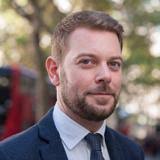
King's | Global Health

King's • Global Health
Jonathan Schad is a Lecturer in Strategy and Organisation Theory at King’s Business School. His research focuses on how organizations can manage fundamental competing demands, such as stability and change, short-term and long-term, and profit and purpose. To understand such tensions better, Jonathan draws on and contributes to paradox theory. His work is linked to the grand challenges of our time, such as managing plural stakeholder demands and changes in the environment. Currently, he is very much interested in how the digital age affects organizations and society. Jonathan's work has been published in strategy and organization theory outlets such as the Academy of Management Annals, the Journal of Management Studies, Strategic Organization, and in The Oxford Handbook of Organizational Paradox (Oxford University Press). His publications have been impactful in the field of organization theory and Jonathan has won large research grants connected to his work. He reviews for prestigious journals in the field (e.g., Academy of Management Journal, Organization Science, Journal of Management Studies).
This research project aims to improve agriculture and remove one of the world’s most aggressive and invasive species in Nepal, while simultaneously creating a joint humanitarian engineering programme. Working with local researchers in Nepal and members of the Community Forestry Users Group (CFUG), the cross-border team are collaborating to produce biochar (charcoal used as a soil amendment) and green charcoal from invasive plants as sustainable solutions at the nexus of food, energy, and water (FEW), and to develop courses on humanitarian engineering.
Professor Mark Henderson |
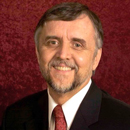
ASU | Technology and Innovation

ASU • Technology and Innovation
Mark Henderson is professor of Engineering at Arizona State University at the Polytechnic campus. He received the MS degree in biomechanical engineering and the Ph.D. in mechanical engineering (CAD) from Purdue University. Henderson was named a Presidential Young Investigator from 1985-90 and is co-author of the textbook, Computer-Integrated Design and Manufacturing. His major research includes 60 papers in computer-aided design and global engineering and he serves on the editorial board of The Journal of Computer-Aided Design (CAD). Henderson is on the founding faculty of an engineering program at ASU's Polytechnic campus. He is also co-founder of the InnovationSpace, a new approach to transdisciplinary product development and entrepreneurship. Henderson's interests extend across typical disciplinary boundaries and include global design teams, innovative product design, computer graphics, CAD and rapid prototyping.
Dr Naho Mirumachi |
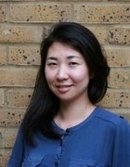
King's | Sustainability

King's • Sustainability
Dr Naho Mirumachi is Lecturer in Geography at the Department of Geography. She has research interests in the politics and governance of the environment, particularly water. Dr Mirumachi has fieldwork experience in the Orange-Senqu River basin in Southern Africa, Ganges River basin in South Asia, and the Mekong River basin in Southeast Asia, and most recently Tanzania.

With a focus on the topic of migration, this research project explores the value and promise of both universities and ‘GLAM’ institutions - Galleries, Libraries, Archives, and Museums - for technological innovation, civil society, and social justice. The research team draws on shared areas of expertise to create ‘testbed’ exhibitions across three different continents in order to develop best practices, identify social and technical infrastructure needs, and present a model for GLAM+University humanities and arts research that is impactful and engaged.
Professor Anna Reading |

King's | Social Justice

King's • Social Justice
Professor Anna Reading is Head of the Department of Culture, Media & Creative Industries. Her interdisciplinary research examines broader questions of social and cultural continuity and transformation with an emphasis on: digital methodologies, materialities and knowledge practices, cultural heritage and collective memory rights, gender and memory, cultural memories of nonviolent struggle, cultural memories of the holocaust and genocide, mobile and social witnessing of terrorism and atrocity.
Dr. Adam Sutcliffe |
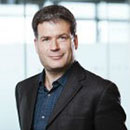
King's | Social Justice

King's • Social Justice
Dr Adam Sutcliffe is a Senior Lecturer in Early Modern History and Head of the Department of History. He specialises in the intellectual history of Western Europe, c.1650-1850, and also in the history of Jews, Judaism and Jewish/non-Jewish relations in Europe from 1600 to the present.
Professor Jill Bennett |
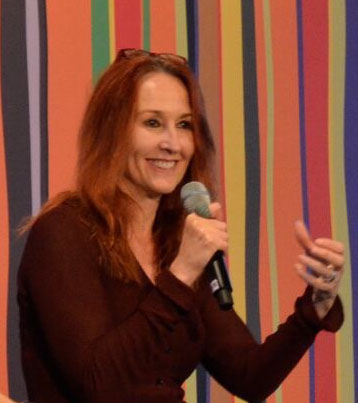
UNSW | Technology and Innovation

UNSW • Technology and Innovation
Jill Bennett is Professor and Director of the National Institute for Experimental Arts (NIEA) at UNSW Art & Design. Her research and practice focuses on interdisciplinary arts-led approaches to the study of human experience. She leads the Memory Lab at NIEA, and is currently investigating (with a team of cognitive neuropsychologists and artists) the use of immersive visualisation technologies to assist memory retrieval. Her most recent projects have focused on memory loss and amnesia, building on earlier pioneering work on art and traumatic memory. Through her books (such as Empathic Vision, 2005 and Practical Aesthetics, 2012) and a series of exhibitions/public projects, she has investigated the way that art engenders productive forms of empathy and social connection. She now works on “engagement science”—designing multidisciplinary research projects, which interface with the public in innovative ways. She is currently developing a major festival of arts and mental health, focused on the theme of Anxiety.
Dr Jim Bjork |

King's | Social Justice

King's • Social Justice
Dr Jim Bjork is a Lecturer in Modern European History and is Joint Review Editor on the Journal of Contemporary History. He has previously taught as a Visiting Assistant Professor in the US at the universities of Notre Dame, Rice, and Colgate. Dr Bjork's primary research and teaching interests are the social history of religion and the history of nationalisation in modern Europe.

